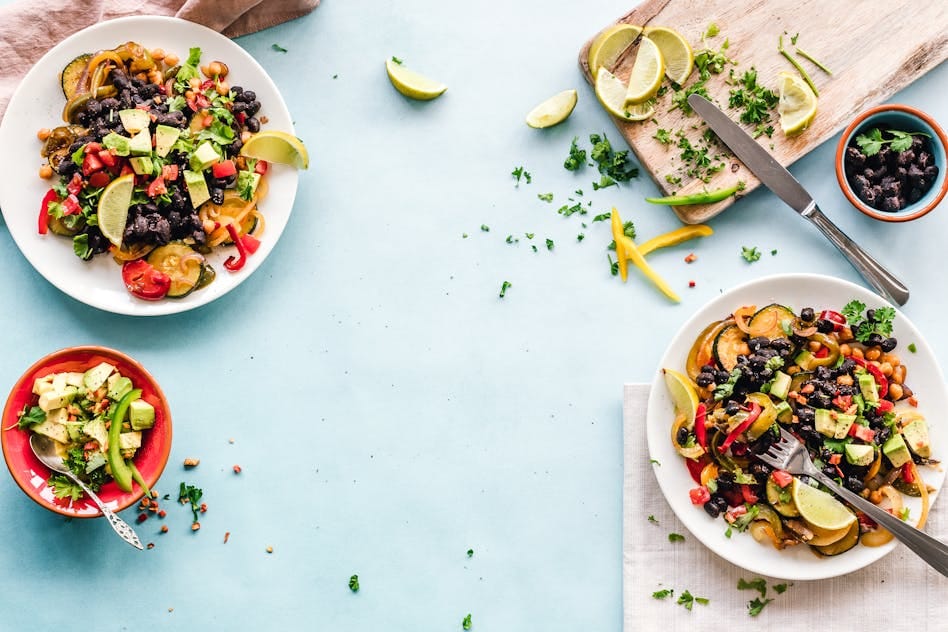Nourish Your Mood: Exploring the Impact of Food on Emotions
In this blog, we'll delve into the fascinating connection between food and mood, exploring how different nutrients, ingredients, and eating patterns can influence our emotional health and happiness.

Introduction: The Link Between Food and Mood
Food is not just fuel for our bodies—it also has a profound impact on our emotions, mood, and overall well-being. The foods we eat can influence our energy levels, mental clarity, and emotional state, affecting everything from our productivity to our relationships. In this blog, we'll delve into the fascinating connection between food and mood, exploring how different nutrients, ingredients, and eating patterns can influence our emotional health and happiness.
The Gut-Brain Connection: Understanding the Science Behind Mood and Food
Recent research has shed light on the intricate relationship between our gut and brain, known as the gut-brain axis. The foods we consume can directly affect the composition of our gut microbiota, which in turn influences neurotransmitter production, hormone regulation, and inflammation levels in the brain. By nourishing our gut with a balanced diet rich in fiber, probiotics, and prebiotics, we can support optimal brain function and promote positive mood regulation.

Nutrient-Rich Foods: Fueling Your Brain and Body
Certain nutrients play key roles in brain health and mood regulation, making it essential to prioritize nutrient-rich foods in our diet. Omega-3 fatty acids, found in fatty fish, nuts, and seeds, have been shown to reduce inflammation and improve mood. Antioxidants, found in fruits, vegetables, and dark chocolate, can protect against oxidative stress and support cognitive function. B vitamins, found in whole grains, leafy greens, and legumes, are essential for neurotransmitter synthesis and energy production. By incorporating these nutrient-rich foods into our meals, we can nourish our bodies and uplift our spirits.
The Impact of Sugar and Processed Foods: Unraveling the Mood-Food Connection
While nutrient-rich foods can enhance mood and well-being, highly processed foods and sugary treats can have the opposite effect. Consuming excessive amounts of refined carbohydrates and sugary snacks can lead to blood sugar spikes and crashes, causing mood swings, irritability, and fatigue. Additionally, processed foods often contain additives, preservatives, and artificial ingredients that can disrupt gut health and exacerbate inflammation in the body. By minimizing our intake of sugary and processed foods and opting for whole, unprocessed ingredients, we can stabilize our mood and support overall health.
Eating Patterns and Mental Health: The Role of Mindful Eating
In addition to individual food choices, our eating patterns and behaviors can also impact our mood and emotional well-being. Mindful eating, or paying attention to the sensory experience of eating without judgment, has been shown to reduce stress, improve mood, and promote a healthy relationship with food. By practicing mindful eating techniques such as savoring each bite, chewing slowly, and tuning into hunger and fullness cues, we can cultivate a deeper connection with our food and enhance our overall sense of well-being.
Food and Social Connection: Sharing Meals for Happiness
Food is often intertwined with social gatherings, celebrations, and cultural traditions, providing opportunities for connection, camaraderie, and joy. Sharing meals with loved ones can enhance feelings of belonging and strengthen relationships, contributing to greater emotional resilience and happiness. Whether it's a family dinner, a potluck with friends, or a holiday feast, the act of coming together to enjoy delicious food can uplift our spirits and nourish our souls.

Conclusion: Nourishing Body and Soul Through Food
The link between food and mood is undeniable, with our dietary choices playing a significant role in shaping our emotional health and well-being. By prioritizing nutrient-rich foods, minimizing processed and sugary treats, practicing mindful eating, and fostering social connections through shared meals, we can nourish our bodies and souls and cultivate a more positive and fulfilling life. Remember, food is not just sustenance—it's a powerful tool for nourishing our mood, lifting our spirits, and fostering a deeper connection to ourselves and others.